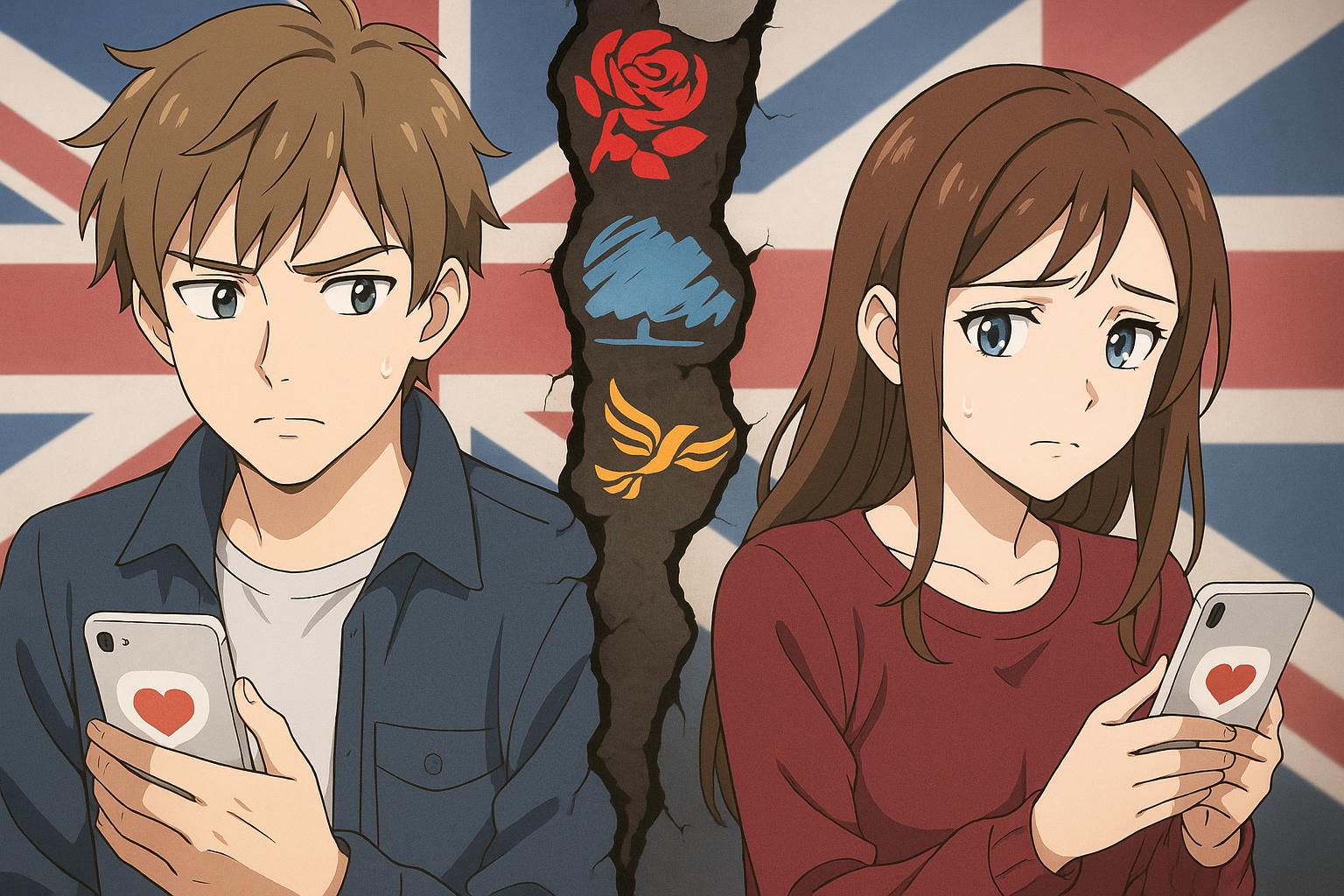The interplay between romantic relationships and political affiliations has taken a striking turn, particularly in the UK. A recent study reveals that for millions of Britons, political preference is now a significant factor in dating, often outweighing even physical appearance. This shift indicates a broader cultural trend where political alignment has become as important as fundamental aspects such as education or personal values in choosing a partner.
Co-authored by renowned behavioural scientist Professor Paul Dolan, the study highlights that individuals are twice as likely to swipe left on dates based on politics compared to educational background. Dolan, who is celebrated for his insights into happiness and decision-making, presents this research in his new book, Beliefism: How to Stop Hating the People we Disagree With. The findings are striking: Labour supporters exhibit a notably cautious approach to dating, shunning potential partners from opposing political camps at nearly double the rate of Conservative voters. This pattern suggests a deeply entrenched tribalism where individual beliefs heavily influence not only social interactions but also intimate relationships.
The study further reveals intriguing nuances in dating preferences. While Conservative supporters display a surprising openness towards Labour voters who defy common left-wing stereotypes, Labour individuals show a strong aversion to those who stray from traditional Tory characteristics. For example, a vegetarian Conservative may face greater scrutiny than their conventional counterparts. This profound ideological divide demonstrates how entrenched political identities can dictate personal connections, echoing the growing polarisation witnessed in the UK since the Brexit referendum.
The implications of this research extend beyond mere dating preferences; they paint a grim picture of societal fragmentation. Professor Dolan warns that the willingness to engage with opposing views is waning. He notes, “This is more than a dating problem. It reflects how people are increasingly unwilling to engage with opposing views in all areas of life. Dating apps are just the canary in the coal mine.” This sentiment is echoed by a range of polls and studies, one of which reveals that 42% of Britons consider political views essential when choosing a partner, a figure that rises significantly among younger individuals and Remain voters.
However, contrasting perspectives emerge when examining the general significance of political views in dating. A survey by EliteSingles found that while only a quarter of singles ranked political opinions as a major factor in choosing a partner, discussions about political beliefs remain prevalent on initial dates. Approximately 65% of respondents felt comfortable broaching political topics when getting to know someone. This suggests that while political alignment is becoming prominent in dating dynamics, it is not yet deemed the most crucial aspect for everyone.
In light of the shifting landscape of romantic pursuits in the UK, particularly through digital platforms, a considerable segment of the population remains committed to finding compatibility across political boundaries. Poll data shows that about one-third of young singles would end a relationship with someone disengaged from political affairs, illustrating a strong desire for partners who share their engagement with civic matters. Yet, this preference can result in significant political snobbery, where profiles declaring outright bans on specific party supporters frequently populate dating apps. This may, paradoxically, reduce overall chances of making a meaningful connection.
In essence, political affiliation is shaping romantic inclinations in increasingly complex ways. The societal repercussions of this trend could be far-reaching, fostering an environment where political identities dictate not only social interactions but also love lives. As the study illuminates, the risks of alienating potential partners based on political allegiance might deepen existing societal fractures, urging individuals to reconsider how they forge connections, both romantically and socially.
##Reference Map:
Source: Noah Wire Services
